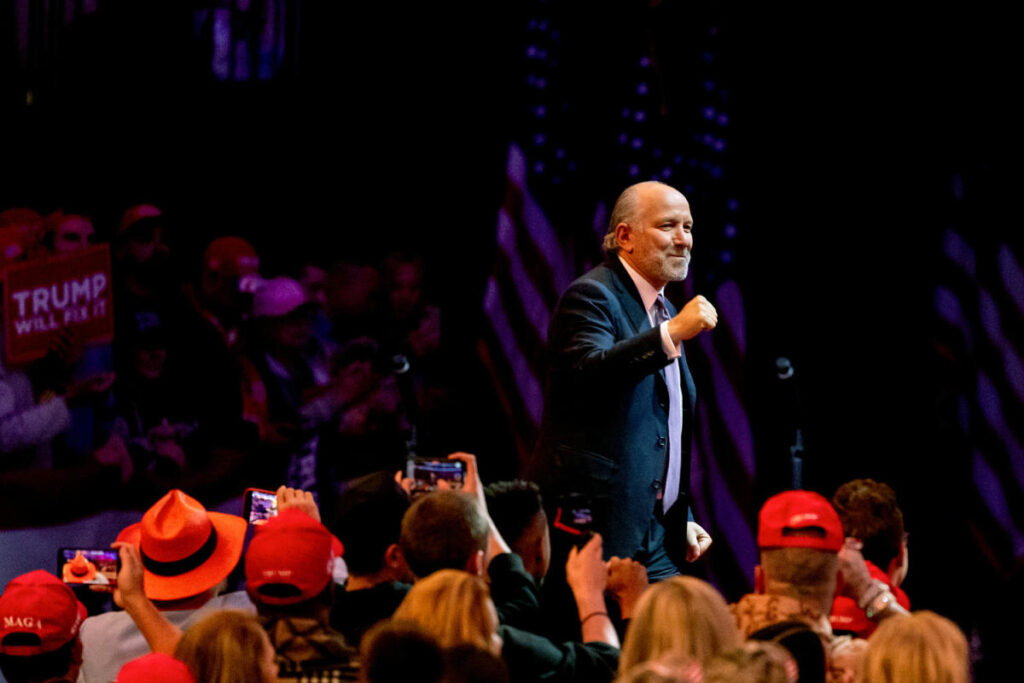On a recent Tuesday in Washington, President-elect Donald Trump announced his intention to nominate billionaire financial executive Howard Lutnick to lead the Department of Commerce. In a statement from Trump, Lutnick was designated to spearhead the administration’s Tariff and Trade agenda, along with overseeing the Office of the United States Trade Representative. As the CEO of Cantor Fitzgerald, a major financial services firm, and as a pivotal advisor during the transition period, Lutnick has been a vocal supporter of Trump’s economic initiatives, particularly regarding the projected implementation of tariffs on imported goods. The specifics of how Lutnick’s selection as Commerce Secretary will affect his role in the transition remain to be seen; however, it underscores the critical function that the Commerce Department will play in executing Trump’s trade policies.
Lutnick expressed his gratitude to Trump for the nomination, taking to social media to convey his eagerness to contribute towards making America “great again.” He referred to the incoming administration as “the best administration the US has ever seen” and pledged to unlock the country’s economic potential. His background is notable for both his business accomplishments and personal tragedies; having been with Cantor Fitzgerald since the early 1980s, he faced the harrowing loss of family members during the September 11 attacks, which claimed numerous lives, including his brother. In the aftermath, Lutnick emerged as a vocal figure advocating for New York City’s recovery and the broader business community, further solidifying his public profile.
This announcement of Lutnick’s nomination came amidst speculation about key appointments to other Cabinet positions, particularly the role of Treasury Secretary, where Lutnick was once considered a frontrunner. His nomination has drawn attention from various sectors, including support from influential figures like Elon Musk. Musk’s endorsement reflects the broader dynamics at play as Trump fills out his Cabinet, having been a constant presence at Mar-a-Lago since the election, indicating a close relationship with the incoming president.
The Commerce Department’s responsibilities, especially in terms of implementing tariffs, are crucial to Trump’s economic strategy. Lutnick’s experience in finance and his leadership at Cantor Fitzgerald position him as a significant player in shaping how the administration interacts with both domestic and international trade challenges. The focus on tariffs aligns with Trump’s broader approach to protecting American industries and jobs, and Lutnick’s appointment suggests a commitment to aggressively pursuing these objectives.
While Lutnick’s nomination marks a significant moment in the Trump administration’s efforts to reshape federal economic policy, it also illustrates the ongoing process of determining who will fill other critical roles in the government. As speculation continues regarding the Treasury Secretary position, the unfolding dynamics of Trump’s Cabinet selections will likely have long-lasting implications for American economic policy going forward.
In summary, Howard Lutnick’s nomination as Secretary of Commerce highlights the incoming administration’s focus on trade and economic policy, crucial to enacting Trump’s agenda. His personal and professional history lends depth to his candidacy, while endorsements from prominent figures like Elon Musk signify the strategic alliances forming within Trump’s political landscape. As the transition progresses, the outcomes of these selections will play a pivotal role in shaping the President-elect’s vision and the operational strategies employed to fulfill it in the coming years.

